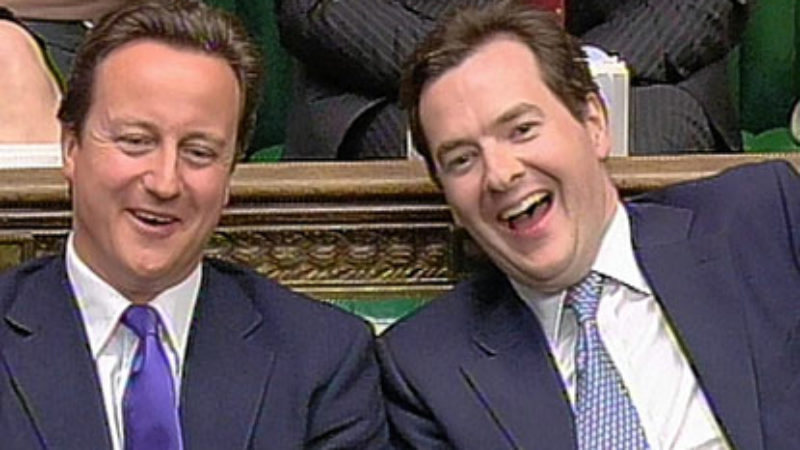
By Ben Jackson and Gregg McClymont MP
Our pamphlet for Policy Network and article for the Guardian have generated some interesting responses. We examined Conservative political strategy and how Labour should respond. We do not offer an array of specific policy prescriptions because we are making an argument about the priorities for policy development and electoral strategy. Political competition is inevitably constrained by time and resources. It is therefore sensible for political parties to discuss how limited time and resources are best used to achieve their goals. Our analysis looks to the past as a way of illuminating Labour’s current strategic debate.
‘Cameron’s trap’ refers to the Conservatives’ desire for a politics defined by who is best at cutting public spending. The Conservatives believe they have an advantage in such a competition. They have gone to extraordinary lengths to try to shift the terms of political debate in Britain so that the sole measure of governing competence is willingness to cut public spending, regardless of the economic consequences. This allows them to claim that there is ‘no alternative’ to their failing economic policies, even when credible alternatives are in fact available.
Coalition with the Liberal Democrats has been of great assistance in defining politics in this way, because it allows Conservative policies to be presented as non-partisan. Cameron’s political economy closely echoes that of previous Conservative leaders who combined electoral success with mass unemployment. In his insistence that there is ‘no alternative’, he echoes Margaret Thatcher. But in his reliance on Coalition to make the claim stick, he more closely resembles Stanley Baldwin.
Yet there is a cardinal difference between the economic situation under those leaders and now – a difference to which Ed Miliband has repeatedly drawn attention. This is the unprecedented stagnation of real incomes for the ‘squeezed middle’.
Conservative governments in the 1930s and 1980s oversaw mass unemployment on the one hand and on the other improvements in living standards for those in work. That is, while millions of families were condemned to the dole, the Conservatives delivered rising living standards for the majority of voters.
Stagnating incomes for all but the very richest prevents the Conservatives from repeating this trick now. Indeed, by 2015 pressure from voters for an improvement in their reduced living standards is likely to be intense.
This is why Ed Miliband and Chuka Umunna are right to pursue an ambitious agenda for economic growth. There is a role for an active state and an industrial policy to improve Britain’s economic performance. Credible policies will take time, hard work and sustained stakeholder engagement to develop. A recent Labour-sponsored contribution to the debate is set out in the Doughty Report. There may also be lessons we can draw from other countries. This is the vital, unglamorous work of opposition to which Labour’s Policy Review is geared.
We were pleased to receive ‘In the Black Labour’ co-author Adam Lent’s comments on our report. Fiscal credibility is important to electoral success. Ed Miliband’s pledge to deal with the deficit in the next parliament if the Tories fail in this one and Ed Balls’ call for the proceeds of the sale of nationalised banks to be used to pay down the national debt, were significant commitments. But we argue that Labour must also continue to build support for a positive programme of economic improvement and reform. This way we can avoid the perception which the Conservatives want to entrench: that cutting public spending is the only thing that matters. This, we know, is not what the authors of ‘In the Black Labour’ intend – and they say so clearly. But it remains a real risk, and demands a nuanced response.
Ed Miliband’s focus on the ‘squeezed middle’ recognizes new political realities. The living standards squeeze is real and historically unprecedented. It is Labour’s opportunity.




More from LabourList
‘It’s one year since I became Britain’s youngest MP. Here’s what I’ve achieved so far’
Tribute: ‘David Lipsey’s joie de vivre is missing in Labour politics today’
Ellie Reeves: ‘One year in, the next phase begins – focused on living standards’